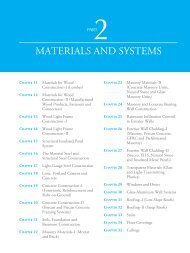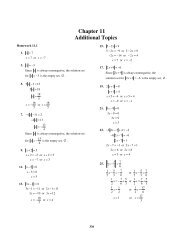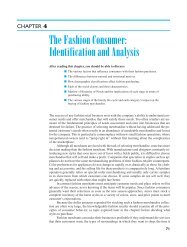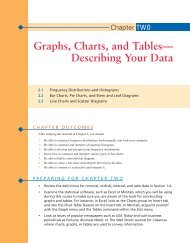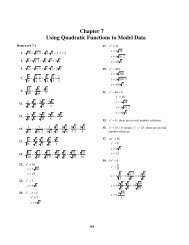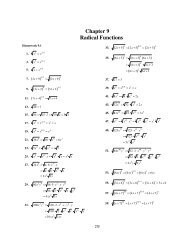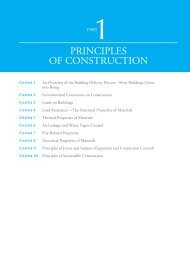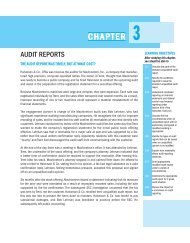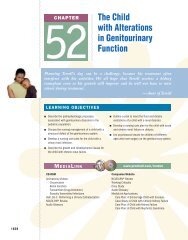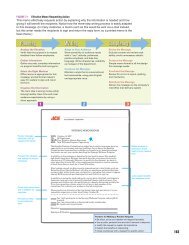Baldwin/Whiteside: Introduction to Contracts - Pearson
Baldwin/Whiteside: Introduction to Contracts - Pearson
Baldwin/Whiteside: Introduction to Contracts - Pearson
You also want an ePaper? Increase the reach of your titles
YUMPU automatically turns print PDFs into web optimized ePapers that Google loves.
discussion of the element of capacity in a binding contract and the ways in which one may<br />
lack capacity.]<br />
15. Define and contrast rescission of a contract and ratification of a contract. [Answer should<br />
include a definition of each word, from either textbook or an accepted legal dictionary.<br />
Answer should include that rescission is withdrawing from a contract and ratification is<br />
affirming a contract. You may also wish <strong>to</strong> give a fact situation similar <strong>to</strong> Tiffany buying<br />
the CD player (on page 31) and ask how one would rescind the contract and how one<br />
would ratify the contract.]<br />
16. Give three examples of contracts that are illegal because they violate public policy. [Adhesion<br />
contracts, contracts with exculpa<strong>to</strong>ry clauses, and — depending on your state’s law —<br />
covenants not <strong>to</strong> compete.]<br />
17. List [three/five/you choose] examples of contracts that must be in writing <strong>to</strong> be binding. [Base<br />
this answer on your state’s Statute of Frauds. It will probably include suretyship<br />
agreements, contracts for the sale of real property, contracts not <strong>to</strong> be performed within<br />
one year, contracts in consideration of marriage, and contracts for the sale of goods valued<br />
at $500 or more.]<br />
18. Explain the difference in a suretyship agreement and a guaranty agreement. [The guaran<strong>to</strong>r<br />
simply insures the ability of the principal deb<strong>to</strong>r <strong>to</strong> pay, while the surety insures the actual<br />
payment.]<br />
19. Name three elements that must be found in a binding written contract. [Three of the following:<br />
the names of the parties, a description of the transaction involved, all material terms and<br />
conditions, and the signature of the party against whom enforcement of the contract is<br />
sought.]<br />
20. Define “course of dealing” as defined in the UCC, citing your source. [A sequence of previous<br />
conduct between the parties <strong>to</strong> a particular transaction which is fairly <strong>to</strong> be regarded as<br />
establishing a common basis of understanding for interpreting their expressions and other<br />
conduct. UCC § 1-205(1).]<br />
Note: Use this question for an open-book test during which your students have access <strong>to</strong> the<br />
textbook or <strong>to</strong> your state’s UCC. If they have neither, you could ask them <strong>to</strong> explain “course of<br />
dealing.”<br />
21. Define “usage of trade” as defined in the UCC, citing your source. [Any practice or method of<br />
dealing having such regularity of observance in a place, vocation or trade as <strong>to</strong> justify an<br />
expectation that it will be observed with respect <strong>to</strong> the transaction in question. UCC § 1-<br />
205(2).]<br />
22. What is a <strong>to</strong>tally integrated contract? [One which contains the entire agreement of the parties,<br />
the final and complete representation of their agreement.]<br />
23. Explain the parol-evidence rule. [Answer should include references <strong>to</strong> <strong>to</strong>tally or partially<br />
integrated contracts. Answer should include the word “evidence” preceded by “extrinsic”<br />
or some term you can understand <strong>to</strong> mean evidence beyond what is set forth in the<br />
contract. If a student notes that extrinsic evidence can be either written or oral, give that<br />
student a star. You will find many students equate “parol” with “oral.”]<br />
11



